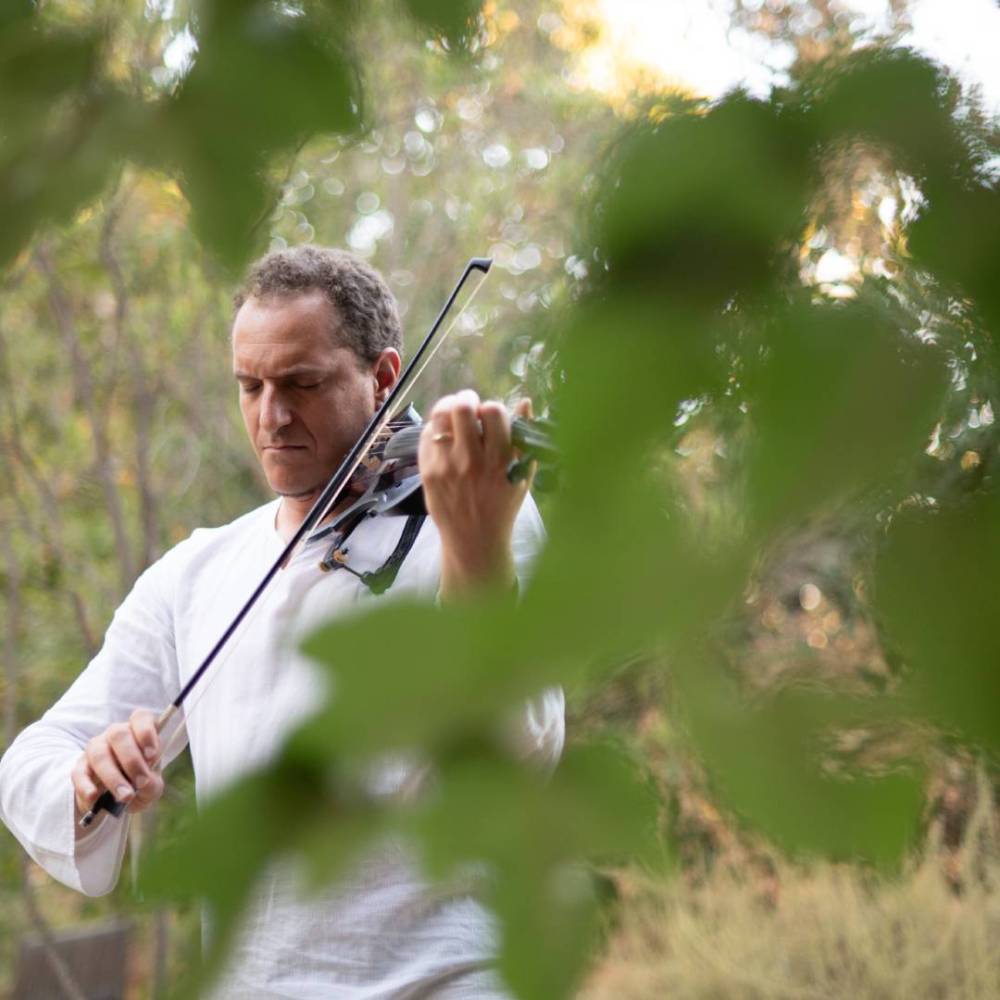Image via Hannah Arista
Five years ago, Miguel Otarola cried watching A STAR IS BORN in theaters for the first time.
In our selfish quest to know everything, we have reached a civilizational breaking point where the daily intensity of news and opinions is so strong that it’s become worryingly difficult to register what is real, what is perverse, and what we care about in the first place.
Bitter and twisted politics, bigotry and the never-ending pursuit of wealth are tough ailments to live with and acknowledge. If you’re reading this, you know that music helps more than anything. But finding silence – pure and grounding silence – seems next to impossible.
Miguel Atwood-Ferguson – the conductor and multi-instrumentalist involved in some of the most cherished jazz, R&B, and electronic projects of the last decade-plus – is a fierce advocate of silence. Earlier this year, when he conducted what may be the first and last performance of Promises, the 2021 piece by Floating Points and Pharoah Sanders, he ended the concert by holding his hands up for an extended pause like the one found on the recording.
“I’m just holding up my arms for 40 seconds,” Atwood-Ferguson demonstrated to me over Zoom last month. “Twelve thousand people… Everyone was almost completely silent for that whole time.”
“It was maybe the most amazing, magical moment of my life,” he said from his home in L.A.’s Eagle Rock neighborhood, where he lives with his fiancée and 3.5-year-old Sebastian (named after one J.S. Bach). Atwood-Ferguson, 43, wasn’t much older than Sebastian when he started playing violin. He grew up in Topanga Canyon; his father was a professional musician, his mother a teacher and art lover. After getting a degree in classical viola, he immersed himself into L.A.’s scene of session players and composers.
Today, his career as an arranger, writer and performer spans hundreds of collaborations and credits. There are big artists like Mary J. Blige and Seu Jorge. Perhaps most foundational are his contributions to the Brainfeeder label, where he has worked closely with Flying Lotus, Thundercat, Hiatus Kaiyote and others.
His debut album, Les Jardins Mystiques Vol. 1, was released on Brainfeeder last week. At 52 songs spanning 3.5 hours, the record is longer than his labelmate Kamasi Washington’s The Epic. It’s better to treat Les Jardins Mystiques – French for “the mystical gardens” – as its own ecosystem, one you can enter freely and from any direction. Its songs, some of which were recorded live in concert, capture Atwood-Ferguson and his collaborators swaying around like dandelions in the breeze.
The vast amount of warm and crackling jazz cuts, dreamy piano performances and high-contrast synth escapades on this album makes it wrong to highlight just a couple of its tracks. Their titles are culled from languages and cultures that have spanned civilization, including Spanish, Sanskrit, Hebrew, and Japanese. Listening to it in full, as I did once, is a long but eye-opening experience, not unlike watching Martin Scorcese’s own 3.5-hour epic, Killers of the Flower Moon.
Atwood-Ferguson spent more than 10 years recording the album with players as mighty as Ambrose Akinmusire, Carlos Niño, DOMi and JD Beck, Jeff Parker, and Austin Peralta, the jazz prodigy and Brainfeeder artist who died in 2012 at 22 years old. (Brainfeeder recently announced a reissue of his only album for the label, Endless Planets, due out in February.) Having amassed over 500 hours of recordings, Atwood-Ferguson says a second and third volume in the Jardins Mystiques series will come in the future.
“We all have that sense of discovery,” Atwood-Ferguson said of the more than 50 musicians on the album. “It’s a positive thing that we even have the ability to question and to challenge ourselves.”
Our Zoom call took place three weeks before Les Jardins Mystiques Vol. 1 was released. Like the album itself, it was long, exploratory and often quite spiritual. Atwood-Ferguson spoke about silence, his view of co-creation and his theory behind “Miguel’s Happy Dance” by Thundercat. Read the edited and condensed interview for POW below.

